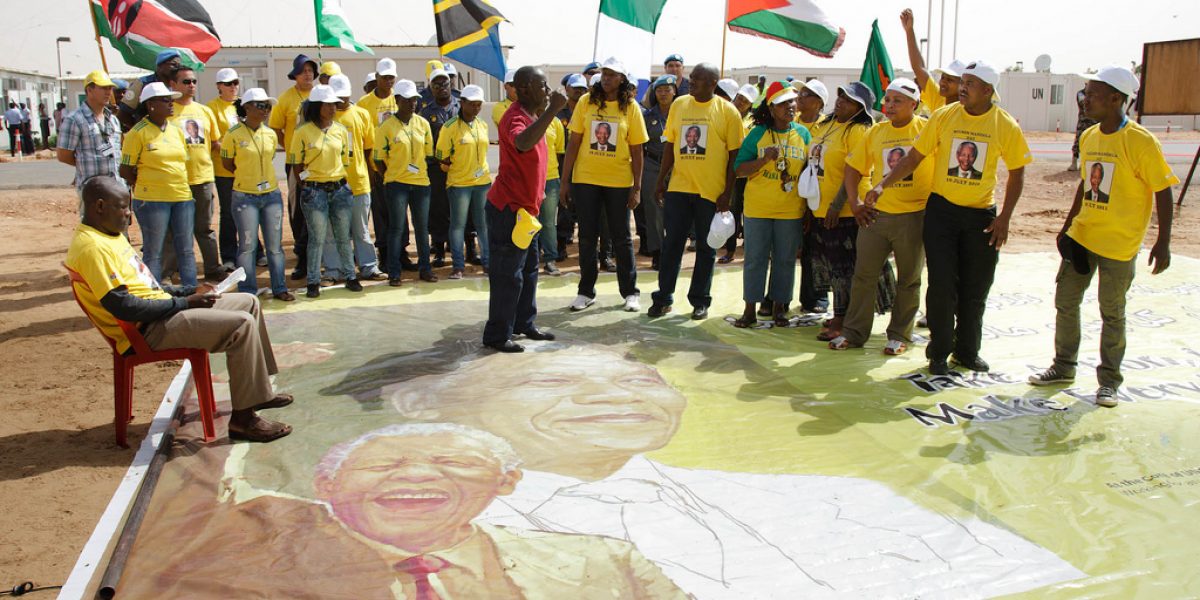They are the members of churches, non-governmental organisations (NGOs), social movements and trade unions known collectively as ‘civil society’. They are animated by the noble ideal of making life better for all. Well, sort of… At a recent workshop on governance that my organisation co-hosted with local partners in Southern Africa, a certain uninvited gentleman I’ll call “Merlin” arrived. He purportedly heads a governance activism outfit which seems to consist of a Yahoo email address and a cellphone number. Apparently, he regularly gets wind of workshops, makes his way over, and promptly requests his “transport reimbursement”.
Now Merlin seemed an intelligent, educated fellow, and may be genuinely passionate in his activism. But he is also motivated by the “per diem”, the stipend handed out at conferences, sometimes called a “seating allowance”, “transport reimbursement” or “daily subsistence allowance”. It is commonly paid at meetings in Zambia, Malawi, Kenya and many places besides. And it’s symptomatic of the problem affecting civil society in Africa.
Providing a small stipend to conference goers is not unusual, for transport costs can be considerable. To some in the developed world, the stipend may be a token amount that makes the stay comfortable, but to many it might literally be the source of the next meal. So for some, becoming a recognised civil society activist is a paying proposition.
Contemporary thinking accepts the need for a country’s development processes to be “owned” and supported by society as a whole, not just by its government. And where governments are inefficient, incapacitated or corrupt, civil society provides an important counterweight. So donors – embassies, philanthropic foundations, multilateral institutions – pour millions into programmes to boost capacity in African civil society
For the activist, these amounts – a few thousand Euros for a community project or $5 or $10 a day at a workshop – are attractive, especially against the alternative. Landing a steady white collar job is difficult: there are few of them around and getting one often depends on who you know. Attending conferences not only pays something and is intellectually stimulating, but it could provide a springboard to more lucrative jobs working for a donor agency or embassy, or even beyond to London, Paris or New York. Activism, therefore, becomes a rational economic and lifestyle choice.
African civil society has a tendency to see itself as left-wing and “mass-based”. This engenders frequent hostility to business, capitalism, profits, “neoliberalism” or “the corporate sector”. And it encourages posturing, as groups jostle to demonstrate the breadth and influence of their representation. This is turn opens the door to a strange menagerie: legitimate NGOs share the floor with Bringos (briefcase NGOs), Mongos (My own NGOs), Pongos (Politicians’ NGOs), Mangos (Mafia NGOs), and Congos (Commercial NGOs). Each markets itself as a credible voice of “the people”, while harbouring some unspoken interest, not least the chasing of funds.
Sadly, for many in civil society immersed in this perverse system, their personal futures depend on not resolving their issues. Aid can function as a resource like oil or diamonds. And it’s the one resource accessible to civil society.
Whatever its problems, though, civil society needs support, as no free society can exist without it. Committed groups such as the All Africa Conference of Churches, the South African Institute of Race Relations and Institute for Democracy in South Africa, the Foundation for Democratic Process in Zambia, the Media Institute of Southern Africa and the Centre for Democratic Development in Ghana are but a few of the diverse thousands around the continent doing commendable work in stimulating discussion about common problems, and advocating measures to resolve them. Their work would be nigh impossible without the support of donors and partners. And the charge that receiving money makes them agents of “foreign interests” is ludicrous, given that the governments making those charges rake in far larger sums in foreign aid. Until Africa has developed an economy that provides the tax revenues and financial backbone to dispense with outside help, both governments and activists will have to rely on it.
Civil society has to change its mindset. Firstly, it should reconsider what its activism aims to achieve. Is it really about principle or policy, or the per diem? Activists must recognise that they too are capable of greed, malgovernance and poor judgement. Secondly, activist bodies should drop their posturing and numbers games. A large following may be important, but it is not the be-all and end-all of credibility. Merlin should represent himself, rather than his Mongo, and stand or fall by the quality of his thinking, not by his putative constituency which is only meaningful if it truly exists. Thirdly, civil society should curtail its antipathy to business. Africans need the career choices and opportunities for prosperity that only a healthy market economy can provide, which in turn will allow only the truly committed to choose activism.
But back to Merlin. He made an impassioned plea for the redistribution of land. Fair enough. He also vowed to expel all investors instantly when he became president. While that might not eliminate poverty, it would probably generate a lot more workshops. By the final day of our workshop, he had moved on – to attend another conference that paid a better per diem than ours.








